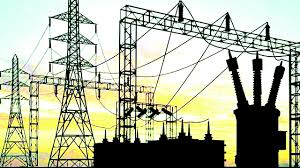
BREAKING: NIGERIANS TO PAY MORE FOR ELECTRICITY, TARIFF GOES UP BY OVER 300%
The Nigerian Electricity Regulatory Commission, NERC, has given the go-ahead to raise the electricity rates for customers in the Band A category.
At a press briefing in Abuja on Wednesday, the Vice Chairman of NERC, Musliu Oseni, announced that there will be a rise in electricity tariffs. This adjustment will result in customers paying N225 per kilowatt-hour, up from the current rate of N66.
“We currently have 800 feeders that are categorised as Band A, but it will now be reduced to under 500. This means that 17 percent now qualify as Band-A feeders. These feeders only service 15 percent of total electricity customers connected to the feeders.
“The commission has issued an order which is titled April supplementary order and the commission allows a 235 kilowatt per hour.”
Meanwhile, here are new electricity charges for DisCos as subsidy goes
The new cost per unit of electricity (kWh) is expected to vary depending on the distribution company (DisCo) and the customer’s consumption level on the back of the increasing inflation rate and the impact of the foreign exchange rate and high cost of gas, which may push up the amount paid by customers without government’s subsidy.
BusinessDay findings showed customers under Yola, DisCo will pay between N234 and N179 per kWh, while those under Jos DisCo will pay between N166 and N101 per kWh.
Ikeja Electric customers will pay between N143 and N69 per kWh, while Abuja DisCo customers will be charged between N153 and N74 kWh. Eko DisCo’s rates range from N125 to N79 per kWh.
Benin DisCo’s charges fall between N137 and N100 per kWh. Enugu DisCo customers will pay between N154 and N95 per kWh, and Port-Harcourt DisCo’s rates range from N142 to N100 per kWh.
Kano DisCo charges vary between N159 and N90 per kWh depending on the customer’s band. In Kaduna DisCo, the rates range from N163 to N88 per kWh, while Ibadan DisCo’s charges are between N140 and N97 per kWh.
Experts has however stated that the continued payment of electricity subsidy was not sustainable as it constitutes a huge financial burden on the federal government.According to the Nigeria Electricity Regulatory Commission (NERC), the federal government spent the sum of N225 billion on electricity subsidy in 2015; N308 billion in 2016; N351 billion in 2017; N440 billion in 2018; N528 billion in 2019; N501 billion in 2020; N251 billion in 2021; N144 billion in 2022; N645 billion in 2023.
 Premium News
Premium News